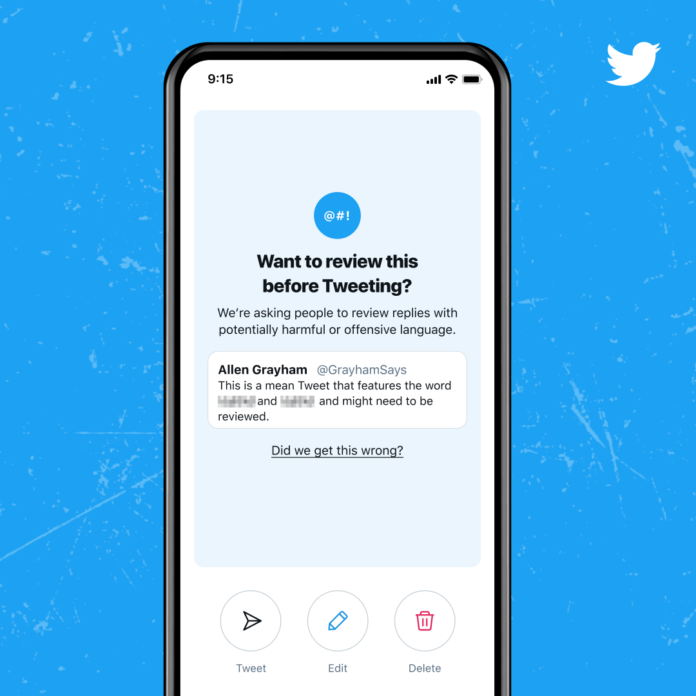By: Nick Gambino
Social media is not exactly known for its tolerance. Platforms like Twitter and Facebook provide a place where users can insult each other behind the veil anonymity. Derogatory terms like “boomer” and “millennial” have entered the lexicon thanks to snarky memes and scathing posts.
Twitter is making an effort to stem some of the negativity with a new feature that asks users to think twice before posting a nasty tweet. The prompt pops up asking, “Want to review this before Tweeting?” At that point they can delete, edit or tweet.
“People come to Twitter to talk about what’s happening, and sometimes conversations about things we care about can get intense and people say things in the moment they might regret later,” a Twitter blog post announcing the feature said. “Starting today, we’re rolling these improved prompts out across iOS and Android, starting with accounts that have enabled English-language settings.”
They’ve been testing the prompt feature for a year or so and according to the company they’ve seen a noticeable change in behavior. 34% of people who received the prompt decided to edit or delete the tweet altogether. Further, those users who received the prompt wrote 11% fewer offensive tweets going forward.
It’s nice to know that simply asking people to consider their behavior or the negative energy they’re putting out is enough to get them to let up on the toxic throttle.
Since the prompts are automatic, they’re not necessarily going to properly read sarcasm or competitive banter between friends. A “screw you” between friends might mean something totally different than one between strangers in the middle of a heated argument.
They’ve made some tweaks to the prompts, taking into account whether the users follow each other and engage regularly. They’ve also added the ability to give feedback on whether the prompt was helpful or relevant. The algorithm is bound to get it wrong as it did during the last year of testing, but it’s still a step in the right direction without going overboard.
These platforms are designed to create knee-jerk reactions that result in engagement. Features like this are an effort to offset emotional responses that lack depth of thought.










